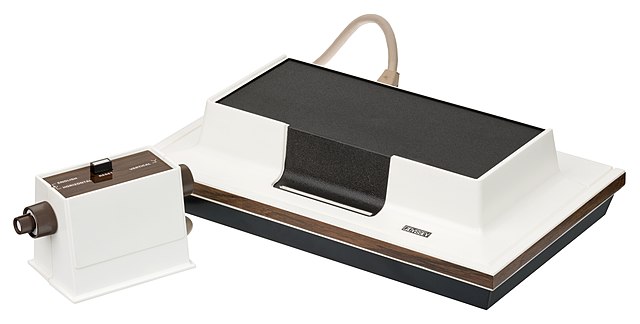In video gaming, famiclone is a term used to refer to a hardware clone of the Nintendo Entertainment System (NES), known in Japan as the Family Computer or Famicom. They are designed to replicate the workings of, and play games designed for, the NES and Famicom. Hundreds of unauthorized clones and unlicensed game copies have been made available since the height of the NES popularity in the late 1980s. The technology employed in such clones has evolved over the years: while the earliest clones feature a printed circuit board containing custom or third party integrated circuits (ICs), more recent (post-1996) clones utilize single-chip designs, with a custom ASIC which simulates the functionality of the original hardware, and often includes one or more on-board games. Most devices originate in China and Taiwan, and less commonly South Korea. Outside China and Taiwan, they are mostly widespread across emerging markets of developing countries.

An example of a multi-console clone system: The FC Twin, designed to resemble a SNES-101. This clone system can play both NES and SNES cartridges.
Two-player Gunboy set
A Mega Kid MK-1000 Computer type famiclone
Discrete chipset manufactured by UMC used in a 1992 famiclone
A video game clone is either a video game or a video game console very similar to, or heavily inspired by, a previous popular game or console. Clones are typically made to take financial advantage of the popularity of the cloned game or system, but clones may also result from earnest attempts to create homages or expand on game mechanics from the original game. An additional motivation unique to the medium of games as software with limited compatibility, is the desire to port a simulacrum of a game to platforms that the original is unavailable for or unsatisfactorily implemented on.
The FC Twin, a popular clone system compatible with game cartridges for the original Nintendo Entertainment System and the Super NES.
The Russian "Турнир" ("Tournament") Pong clone
The Magnavox Odyssey
The Overkal, made by Inter Electrónica S.A. in 1974, a clone of the Magnavox Odyssey for the Spanish market







